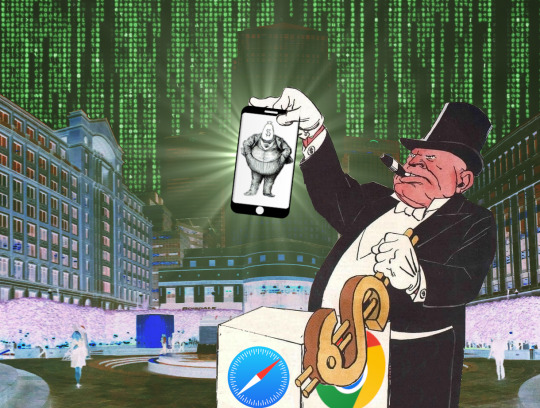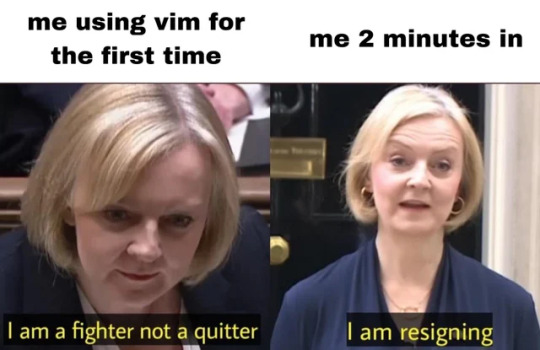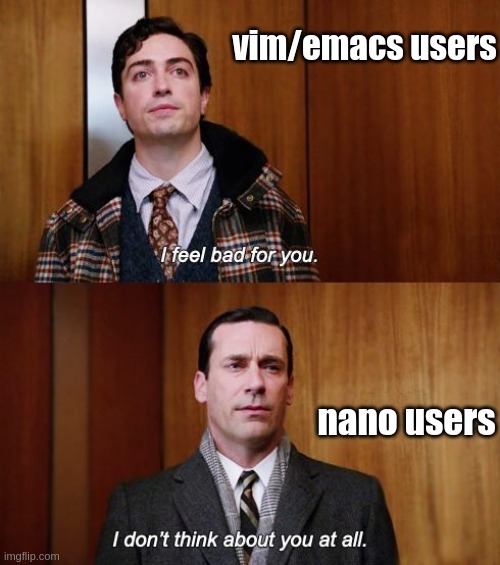Text
inaugural blog, 2023
hi !
welcome back. i've finally returned for the new year, but it is just to immediately turn around and say i'm going to be taking a break from my reddit and tumblr for a while.
i want to dedicate my life to understanding buddhism. i am going to start taking refuge in buddha, the dharma, and the sangha. i will need to step away so i can focus on my learning. i'll still talk to my friends on telegram every so often.
hope to see you again soon.
7 notes
·
View notes
Photo


Anarchism.
Anarcho-mutualism.
Mutualist Anarchism.
https://en.wikipedia.org/wiki/Mutualism_%28economic_theory%29
39 notes
·
View notes
Text
Broader conversation about "small and big dick energy"
I frequent the website called "reddit." I know I know, big cringe! But that is the unfortunate truth. I have only recently made my latest account, primarily to get tech support when google searches don't land the results I'm looking for. It's indicative of how shitty the internet has become that anytime you look for actual advice or support, you have to add "reddit" to the end of your search to get real responses, since half of the time the responses are AI generated articles that do not provide actual instructions or make taking in the information more difficult simply because of how it's written. Apparently AI is "advanced" though, so advanced it can supposedly make art! This and other blatantly contradictory sentiments, more at 11.
There has been this discourse on reddit lately about the concept of "small dick energy" and whether it engages in the same sort of body shaming that we are critical of in other ways, such as when someone is made to feel bad for their guilt or certain immutable, unchangeable qualities about their appearance. For example, for me this is cleft palette, this was something I was made to feel bad for growing up, because my corrective surgery from infancy has permanently altered the way my lips look.
But does "small dick energy" fall into the definition of body shaming? The answer is yes, of course it does. You would have to be silly to not say so. Full disclosure, I have a small penis but I have been told I have "big dick energy," which I have actually corrected on the spot before because I'm not particularly interested in engaging in this sort of thing. If I was at one point, I'm at a point in my life now where I'm totally not.
This is to say I'm not going to spend this post shaming people that currently do it, because these things are societally reinforced! You cannot simply "opt out" of this if you are a modern human, connected to globalized networks of communication. The internet is a basic necessity for modern life, unfortunately. If you were to try to leave, you'll find your opportunities limiting.
With that out of the way, what actually makes "small dick energy" different from other forms of body shaming? I've heard the take that it's not actually about the size of someones dick, but rather its about their "insecurity." Oooh, it's about insecurity! So that's why I have to say their penis must be physically small, or that they come off like they have a physically small penis. Oh okay that makes a lot of sense, that's definitely directly correlated to... a personal feeling of confidence in yourself?
So then why must an aspect of someone's physical characteristics come into play? There are A LOT of insecure fat people, but we never say someone has "obesity energy" or "thin energy." Would it be okay if we did? Or is it not because that disproportionately affects the feelings of women and we, societally, have signed off on the feelings of men? I feel WAY more insecure about my weight than my penis size. (Though I am also a trans woman so, maybe I'm biased. I'm more bothered by it being there at all personally. :P)
As well, in the same way that there are so many products that market to men insecure about their size, like "penis enlargement pills/pumps," there are a slew of diet plans that exist to address the insecurities of overweight people, either by enabling them with HAES diets or by telling them that they'll look so much better than everyone around them if they lost weight and that acting as encouragement for their future dietary plans.
On this note, why do we make exceptions for women's feelings? How are woman's feelings more important than men's feelings? Both should be given equal gravity and respect and it's the fact that we don't that alienates young white men and casts them out for unsavory influences to swoop up. Sorry, I know we're just supposed to circlejerk about hating white people and white men and how they're literally the devil and are responsible for all of our current problems but let's be truthful for a moment and acknowledge it's all of our faults when these men are so socially atomized to the point that they fall into the arms of horrible people, like Andrew Tate and Elon Musk and Sneako.
I would also like to address just the casual ableism around this conversation too, those that defend shaming men with small dicks will say that "It is obvious what we're really saying! We're not actually saying it's bad to have a small dick, It is obvious and very apparent and clear that it's really about insecurity!"
As an autistic person, and as someone with borderline personality disorder, these conditions make nuance very hard for me to understand and makes picking up on social cues hard. I have to actively work on not seeing the world through a black and white lens and because of my personality disorder, because I didn't even know what was wrong with me because no one would talk to me, I never really interacted with other human beings for a very long time and therefore, never had an opportunity to pick up on these things. As well, both of these conditions make it very hard for me to process emotions and I tend to feel them much more intensely and for much longer periods of time.
It's really not my fault that I don't understand what it is you're actually saying and yes, the onus is on you to explain. As well, I am entitled to my opinion that what you're saying is still fundamentally hurtful. It is not "obvious to anyone with half of a brain" that you insulting someone's physical appearance isn't you actually insulting someone's physical appearance.
What is actually wrong with just calling someone insecure? If "small dick energy" means that someone is insecure, why not just say that directly? Why do you need to put someone's physical appearance into it? What, are you scared they're going to retaliate or argue with you? Either way that's probably going to happen, but you're going to have the high ground because you don't start with insulting someones appearance. If what it is you value is being morally superior, that is. Which for many Redditors, it definitely is, especially for those that feel the need to have the "correct" opinion on every single issue and to be plugged into the discourse at all times.
This discourse started with a tweet of Greta Thunberg saying that Andrew Tate had "small dick energy." Do I feel like Andrew Tate needs defense? Not at all, and I hope something I can't say on here happens to that bastard, personally. This isn't me playing defense for someone that definitely doesn't need it, but this is to question the justifications for casual cruelty towards men.
0 notes
Text
Web apps could de-monopolize mobile devices

Mobile tech is a duopoly run by two companies — Google and Apple — with a combined market cap of $3.5 trillion. Each company uses a combination of tech, law, contract and market power to force sellers to do commerce via an app, and each one extracts a massive commission on all in-app sales — 15–30%!
This is bad for users and workers. Many companies’ gross margins are less than 30%. In some categories, that means there’s no competition. Take audiobooks: publishers wholesale their audiobooks to retailers at a 20% discount, so a retailer that sells its audiobooks through an app, paying a 30% commission, will lose money through every sale.
This is why the only convenient mobile audiobook stores are Apple Books (a front-end for Amazon’s Audible) and Google Books: Apple doesn’t have to pay the Apple tax, and Google doesn’t have to pay the Google tax, and that means that Apple and Google can demand crippling discounts and preferential treatment from publishers and independent authors.
The app tax is a tax on the workers whose creative works are sold on mobile platforms, because creative workers have the least bargaining power in this monopolized supply-chain. Our publishers can squeeze us — and the editorial workers, narrators, and sound technicians who work on our books — to make up the difference.
Independent authors who sell directly on these platforms, meanwhile, have even less leverage and get even worse terms. Things aren’t much better at the other end of the supply-chain, either: while firms prefer to wring concessions out of their workers and suppliers, they’re not averse to raising prices on customers, providing that all the competitors do so as well.
Since every competitor is also selling through an app store and either paying a direct app tax or ceding margin to the mobile duopoly as a condition of selling in their in-house, pre-installed stores, they all have the same incentive to raise prices.
Economists call this the monopsony problem (or, since we’re talking about two companies, a duopsony or oligopsony problem). That’s an unwieldy and esoteric term, so Rebecca Giblin and I coined a much better one, and wrote a book about it: Chokepoint Capitalism:
https://chokepointcapitalism.com/
Theoretically, there’s a way to avoid the app store chokepoint: web apps. These are part of the HTML5 standard, and if a browser fully implements that standard, then developers can make a self-encapsulated “app” that’s delivered in the browser, complete with an icon for your home screen, capable of doing anything an app store app can do.
A company that wants to sell stuff without paying the app tax could hypothetically deliver a web app that the user could download and install via their browser. This doesn’t just avoid the app tax, it also overrides the app stores’ editorial control, like Apple’s decision to block privacy tools in China to aid in state surveillance.
But you can’t have a web app without a web-app-compatible browser, and you can’t get a web-app-compatible browser in Apple’s App Store. The only browsers permitted in the App Store are those based on WebKit, the browser engine behind Safari. This means that every browser on Ios, from Firefox to Edge to Chrome, is just a reskinned version of Safari.
That’s a problem, because Webkit suuuuuuucks. Without the discipline imposed by either regulation or competition, Apple has systematically underinvested in Webkit, so that major bugs remain unaddressed for years and years. Some of these bugs are functional — Webkit just doesn’t act the way its documentation says it does — but others represent serious security vulnerabilities.
This is an important point: app store proponents say that denying users the right to choose where they get their apps and excluding competitors is necessary, the only practical way to prevent security risks to users. But while app stores can prevent the introduction of insecure or malicious code, they can also block the introduction of code that fixes defects in the manufacturer’s own security.
Mobile companies don’t want insecure code on their platforms, but they also don’t want to erode their profits. An Iphone with a working VPN app is more secure than one that lacks that app, but if that Iphone is owned by a Chinese person, it endangers Apple’s access to low-waged Chinese labor and 350 million affluent Chinese consumers.
Likewise, a third party might create a browser engine that corrects the security defects in Webkit, but if Apple allows users to install such a browser engine, they will lose the ability to extract billions through the app tax.
Companies never solely pursue their customers’ interests. Instead, they seek an equilibrium that allocates as much value as possible to their shareholders. This allocation is limited by both competition (the fear that a bad service will drive customers to a rival) and regulation (the fear that a bad service will attract crushing fines).
The less competition and regulation a company faces, the more value it can take from its users and give to its shareholders. Here, mobile platforms have it easy: they don’t have to worry about competition because of regulation. Laws like Section1201 of the Digital Millennium Copyright Act (DMCA) and Article 6 of the EU Copyright Directive (EUCD) make it illegal to jailbreak a phone to install third-party apps. Jay Freeman calls this “felony contempt of business model” — that is, the government will punish your competitors for trying to compete with you. Nice work if you can get it.
As the old joke goes, “if you wanted to get there, I wouldn’t start from here.” The rules that should promote better corporate conduct (through competition) instead encourage worse behavior, by putting companies in charge of who gets to compete with them, in the name of user safety.
Meanwhile, users are increasingly trapped inside walled gardens, because their media, apps, and data are locked up in mobile silos and switching to a rival means enduring the switching costs of leaving it all behind. Mobile companies claim to have built fortresses to keep bad guys out, but those high walls make fortresses into prisons that keep customers locked in.
But anything that can’t go on forever will eventually stop. The manifest unfairness and insecurity of the regulation-backed walled garden model has attracted the interest of new trustbusters, competition regulators from China to the EU to the USA to the UK.
The UK plays a key role here. The country’s Competitions and Markets Authority boasts the largest workforce of technical experts of any competition regulator in the world: the CMA’s Digital Markets Unit has 50+ full-time engineers, which allows it to produce the most detailed, most insightful market investigations of any nation’s competition regulators.
https://www.gov.uk/government/collections/digital-markets-unit
(Don’t get too excited, though: in keeping with the UK’s abysmal standard of government competence, Parliament has yet to pass the long-overdue secondary legislation that would give the DMU its own enforcement powers. Ugh.)
Last June, the CMA proposed a market investigation into cloud gaming and mobile browsers (gaming is the largest source of app store revenue and cloud gaming is a way to avoid the app tax, so it’s a closely related issue):
https://www.gov.uk/cma-cases/mobile-browsers-and-cloud-gaming
There were many significant submissions over this proposal, including comments that EFF legal intern Shashank Sirivolu and I drafted:
https://www.eff.org/document/comments-electronic-frontier-foundation-cmas-inquiry-mobile-browsers-and-cloud-gaming
Many commenters (including EFF) proposed that the CMA should intervene to improve the state browser engines competition on Ios and Android (Android allows multiple browser engines, but doesn’t give them the same hardware access that Chrome and its Blink engine enjoy).
This argument seems to have landed for the CMA. Today, they announced that they would go ahead with a full-fledged market study into mobile browsers and cloud gaming:
https://assets.publishing.service.gov.uk/media/63984ce2d3bf7f3f7e762453/Issues_statement_.pdf
The most obvious outcome of this study would be an order forcing the mobile vendors to open up to full-featured, alternative browser engines. This is compromise solution, between forcing open app stores onto the platforms — which would mean forcing Apple to allow sideloading and policing Google’s use of contracts to limit third-party stores — and doing nothing.
A browser engine mandate is less satisfying than open app stores, but it is also more achievable, and easier to monitor and enforce. With Android, Google proved that you don’t have to use hardware locks to prevent third-party app stores — you can use a hard-to-detect web of contracts and incentives to create an app store monopoly that’s nearly as airtight as Apple’s.
But policing whether a platform permits rival, full-featured browser engines — ones that enable web apps and cloud gaming without paying the app tax — is much easier. Also easier: developing objective standards for evaluating whether a browser engine is secure and robust. Open Web Advocacy’s criteria are a great starting point:
https://assets.publishing.service.gov.uk/government/uploads/system/uploads/attachment_data/file/1118238/Open_Web_Advocacy_-_Consultation_response_-_Publication_version.pdf#h.q9nder968wzm
The CMA announcement is welcome, but has some gaps. It under-emphasises the importance of hardware access (for web apps to compete with native apps, they need full hardware access), and could leave new browser engines at the mercy of the existing review teams that review all the other apps in the app store (who reject rival browser engines out of hand).
Meanwhile, while I was writing this article, Mark Gurman published a jaw-dropping scoop in Bloomberg: Apple will open its Ios platform to rival app stores by 2024, in order to comply with the EU’s Digital Markets Act (DMA):
https://www.bloomberg.com/news/articles/2022-12-13/will-apple-allow-users-to-install-third-party-app-stores-sideload-in-europe
I’m still absorbing this news, but I think this complements the CMA browser engine work, rather than rendering it redundant. Alternative app stores don’t necessarily mean alternative browser engines. Apple says it will have security standards for alternative app stores, and these standards could well include a ban on browser engines. At a minimum, it’s clear that different levels of scrutiny need to be applied to apps, app stores, and browser engines, as each one poses different threats and opportunities.
[Image ID: London’s Canary Wharf, a high-rise business district that is home to the UK Competition and Markets Authority. The colours of the buildings have been inverted, and the sky has been filled with a Matrix ‘waterfall’ graphic. In the foreground is an ogrish giant, standing at a console, yanking on a lever in the shape of a golden dollar-sign. The console is emblazoned with the logos for Chrome and Safari. The ogre is disdainfully holding aloft a mobile phone. On the phone’s screen is a Gilded Age editorial cartoon of a business-man with a dollar-sign for a head. The phone itself is limned with a greenish supernova of radiating light.]
103 notes
·
View notes
Text
Part of the reason T4T is so common is the mix of "don't freak out and kill me" plus "I'm not going through gender 101 with you," sure. It's way easier being trans with other trans people in that way. But also another part of it is a certain amount of wanting "holy shit your gender is so awesome, my gender is so awesome, I love what you're doing with gender, I'm amazing at gender" to go both ways. Which, not many cis people are like that about their gender. Not zero, but it's not common, and I just enjoy sharing the genderiness of it all too much.
28K notes
·
View notes
Text
Mac users ;)

Meme asides, almost all my IT friends who use macOS, have homebrew on it. Without `brew` macOS is incomplete. What do you think? Read more: How to install Homebrew on Mac OS to use the brew package manager
40 notes
·
View notes













